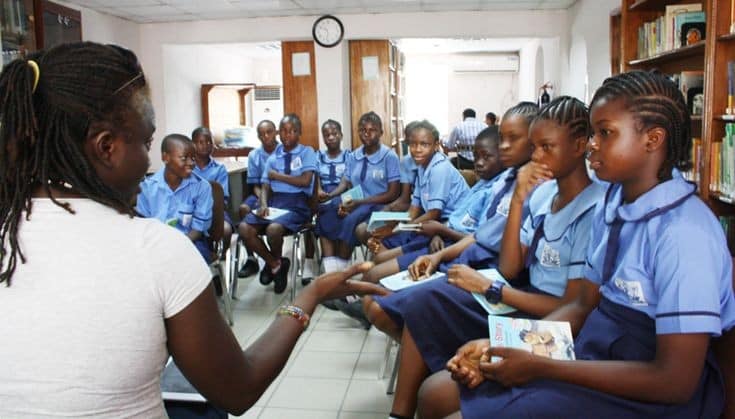Nigeria is rapidly growing in terms of population and a large proportion of this population are youths – the supposed “leaders of tomorrow.” However, these youths are not adequately prepared to become one.
The Nigerian education system expected to train youths to prepare them for the current and future workforce is being shackled with factors that are relegating its efficacy and relevance. Today, we have several youths lacking the necessary skills, knowledge and abilities to function and thrive in the competitive Nigerian workforce.
Who do we question or blame for this crisis? Nigerian youths or the system? What are the reasons for the setbacks? What have we not been doing right as a country? In this piece, I will opine my answers and explore the factors impeding the efficacy of the Nigerian education system in preparing students for the workforce. Read along.
Table of Contents
The Nigerian Education System: An Overview
The education system in Nigeria is faced with multifaceted challenges and lacking in effective educational ideals and practical implementation thereby making learning difficult and unproductive. Owing to this potpourri of issues, the system is unable to sustain its value and relevance as the global world revolutionizes.
Systems are changing and the new methods of doing things are consequently evolving. The change in the Nigerian workforce today is tied to these emerging trends in the global world. However, the education system in Nigeria seems to be stagnant and inadaptive to these changes, hence drawing a setback on the sector and making students inadequately equipped for the workforce.
Ready to meet passionate readers or writers like you? Join our WhatsApp community; it’s the best place you can be.
Factors Affecting The Nigerian Education System
Some of the factors affecting the education system in Nigeria include:
-
Poor funding
This is one of the biggest factors that has not stopped affecting the system. A direct victim of this poor funding are federal schools, polytechnics and public universities in Nigeria. The government feels they are spending a considerable amount on education, whereas it’s still not enough for the system to function efficiently as required.
Going by UNESCO’s recommendation, Nigeria should spend between 15 to 20% of its annual budget on the education sector. But, unfortunately, we are spending less and this is too paltry for a significant change in the sector.
The system is still lacking sufficient infrastructure, facilities and materials to aid the effective learning of Nigerian students in their various schools. Due to this, lecturers or teachers struggle to discharge their duties effectively while students are left to grapple with these insufficiencies which ought to be the necessary provisions to drive lofty educational ideals and practical implementation.
-
Education curriculum
In the ever-evolving landscape of globalization, knowledge has increased and broadened and it has necessitated the need to find more and do things differently. The era of globalisation demands people who have soft or digital skills to thrive and not just academic qualifications.
Despite this, the Nigerian education system has not adapted to the changes in including new knowledge in its curriculum. The Nigerian education curriculum is outdated and does not reflect the needs of the trends in the job market. It is more theoretical than practical.
Imagine teaching students the old ways of doing certain tasks rather than teaching the modern ways using new technologies to prepare students for what is in today’s world.
-
Quality of teachers
Teachers are supposed to be adequately trained and qualified to teach students, but it seems to be the opposite in the Nigerian education system. There are so many teachers in the sector who lack sound knowledge of what they profess to teach. They teach less than what is required of them, especially with the new trends in systems.
This is because they lack or refuse to update their knowledge about the field to be able to teach adequately and effectively. Students in turn become less equipped and trained in the knowledge of that particular field. This same set of people are pushed into the world and the workforce, unprepared and unfit.
Trends in the Nigerian Workforce Necessitating Prepared Students
The Nigerian workforce, and largely the global world is expanding rapidly and this is geared towards the need to make work easier, faster, productive and effective. There are invariably many opportunities in the workforce, but it’s now a “survival of the fittest game,” because only those who are fit for these positions can access the opportunities.
Here is where the need for prepared students who have been adequately equipped and are capable of surviving in the space arises. Some of these trends are:
-
Technological advancement
The evolving landscape of Nigeria’s job matter and economy is dependent on the dynamics of the technology environment, in which digital transformation is on the rise in every industry. Many sectors are embracing technology, creating roles in digital marketing, IT and e-commerce.
With this, students who lack tech literacy skills will not be fit to qualify for the evolving roles in the workforce. There is a higher demand for people who hone these skills and a diminishing demand for people with just academic qualifications. Most Nigerian students are not adequately prepared for this kind of workforce due to the poor Nigerian education system lacking in the use of digital tools.
-
Value of digital skills
Digital literacy skills involve the ability to access, evaluate, and communicate information using technology. These skills in the job market include database management, data analysis, project management and digital marketing among others.
Although, the digital skills required in the job space are not just the basics, but a bit advanced. With this development, there is a transition of value from academic qualifications to digital skills. No one truly cares about what you graduated with. They want to know what you can offer them to increase productivity and push their organization forward.
-
Job replacement
The fear of people in the workforce today is that artificial intelligence (AI) will take their jobs. How true the statement is and how fast it’s going to be is still dependent on our preparedness to navigate through the times and stay relevant. This, of course, cannot be achieved without upskilling.
Machines replacing humans, making work easier, faster and efficient have reduced the number of human resources in many organizations. With this, what will be the hope of students who have spent 4 years of their lives studying a particular course, only to find out that he/she is now limited or less equipped when he/she gets out there?
Bridging the Gap in the Nigerian Education System
If the educational system that is supposed to train and equip students with adequate knowledge and prepare them for the competitive workforce is not doing anything about it, then the system is gradually losing its efficacy and relevance.
How then do we sustain the system? How do we bridge the student-effect gap between the Nigerian education system and the workforce? Below are some suggestions:
-
ICT integration
Information and Communication Technologies (ICT) play vital roles in improving existing learning and extending opportunities for lifelong learning. In this 21st century, education cannot thrive or be effective without integrating ICT or computer technology into the learning process.
It enriches educational content and pedagogical strategies. It should not be sidelined or used ineffectively. Nigeria must globalize her educational system to stay relevant and prepare students for the competitive workforce.
-
Qualified teachers
A system can only thrive when the people therein possess the qualities and skills to make it do so. Employment in the education sector should be well-scrutinized to ensure that the manpower in the system is well-trained, qualified and vast in knowledge. Only individuals who can meet the challenges of the school system vis-à-vis the computer age and globalization should be considered.
-
Practical implementation
The workforce requires people who are highly skilled, innovative and creative, not just those who possess academic knowledge. A hands-on practical approach should be adopted in the system to engage students. They should be equipped to solve real-life problems, such that they can replicate the same when they join the workforce and a larger advantage, the society.
Want to keep track of more premium insights like this? No worries! Simply subscribe to our newsletter today and let’s update you with our latest posts.
Conclusion
Education remains the best legacy, highly valued and relevant. However, if not spiced with the right approach and strategies, it could lose its relevance and value on the direct users of it – the students, thereby making them also less valued/relevant in the Nigerian workforce.
Edited by Priscilla Ajayi.
About Author

- A content writer, copywriter and fictional author. I like to explore writing on lifestyle, entrepreneurship and many more with valuable and highly insightful contents that relates with prospects to educate and motivate.
Latest entries

 OpinionNovember 7, 2024Should The Death Penalty Be Abolished in Nigeria?
OpinionNovember 7, 2024Should The Death Penalty Be Abolished in Nigeria?


